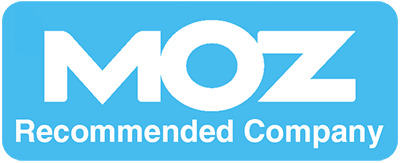Grow Your Brand with Organic Search That Converts
High-impact content strategies that earn top-tier media, capture search demand, and drive measurable results across Google, AI, and social platforms. Backed by 13+ years of proven performance.




Invest in a Proven Organic Growth Stack

Strategic Consulting and Managed SEO
Collaborate with our experts to build vertical-dominating strategies that captures high-intent traffic across Google and AI-driven search platforms. Count on us to monitor algorithm updates and guide technical improvements that keep your site competitive and future-ready.
Content Libraries Built to Rank, Educate, and Convert
Fractl will ideate, design, and install content engineered to rank for your most relevant and valuable search queries. We audit, prune, and optimize your existing content libraries to ensure discoverability across both traditional and AI-driven search engines. Partner with us to automatically refresh your content and defend top rankings in hyper-competitive verticals.
Data Journalism Campaigns That Build Authority and Search Visibility
Build your brand's authority with data journalism and digital PR campaigns that attract high-quality links from top-tier media, niche publishers, academic institutions, and authoritative sources. Our team leverages over 13 years of media relationships, trend insights, and outreach strategy to create content that earns trust and drives long-term organic growth.
Strategic Digital PR That Moves at the Speed of the News
Our team monitors the media landscape daily to intercept timely opportunities and shape the stories that matter. We create research-backed content that secures authoritative links swiftly, boosting your visibility and relevance during the moments that matter most.
Expert Quote Placement That Builds Authority Year-Round
Stay top of mind with journalists by plugging into our always-on sourcing program. We connect your subject matter experts with high-value writers seeking credible input, helping you earn brand mentions, build trust, and position your team as thought leaders in your category.
Interactive Tools That Engage Bottom-Funnel Customers
Drive engagement and conversions with interactive tools designed for mid- to bottom-funnel audiences. From calculators to maps, we craft evergreen assets that earn links, educate users, and establish your brand as an industry resource.
Household Brands Trust Us
Marketing Leaders Recommend Us

Fractl has always been on the cutting edge of content marketing (since before it was even called that). I consider them a key piece of our team and growing success. If you’re willing to push the envelope and think in terms of ‘there is no box,’ then you want to work with Fractl.
Jeff Smith
CEO, Recovery Brands

We had zero issues with them, and they always exceeded expectations. In six months, Fractl delivered 40 high-quality articles. Thanks to their work, traffic improved significantly with over 15,000 clicks in a month. Also, the published articles already generated hundreds of backlinks. Overall, the team was easy to work with; they led a flawless project management.
Jonathan Bleier
Senior Global SEO Manager, McAfee

Their work has exceeded our expectations. Fractl's work has driven over 500 links across both brands and achieved a 251% year-on-year growth in SEO traffic. The team has been organized, responsive, and a pleasure to work with. Moreover, the team has met all deadlines. Overall, the team's innovative and collaborative approach has stood out.
Emily Palonen
Senior Brand Manager, HeliosX

Fractl has an industry-standard profile in the digital world, which shows that they're best-in-class for what they do. Their work has secured placements on high-authority sites for the client, resulting in a 200%-400% increase in website traffic.
Shay Aldriedge
Director of Content Marketing, Payless Power

Fractl is my sigh of relief. It's rare to find an agency you can trust to create high-quality content while staying focused on your unique business and achieving the desired results. The personal attention they give our projects and the ownership they take over the results unblocks our content marketing workflow and enables us to scale up our content creation.
Kim Cooper
Senior Marketing Manager, Alexa

Fractl is our secret weapon. They helped us reach huge audiences at a fraction of the cost of traditional advertising or sponsored content. It would be impossible for us to hire so many different talents (creatives, design, copywriting, project management, outreach, etc.) … Fractl has the best team out there.
Ryan Swearingen
Digital Marketing Strategy, DIRECTV

Fractl has been a consistently great partner. Their work is smart, focused, and creative and has delivered incredible reach for our campaigns, earning top editorial placements that simply couldn't be achieved with traditional paid efforts alone.
Simon Lejeune
Marketing Director, Busbud


































